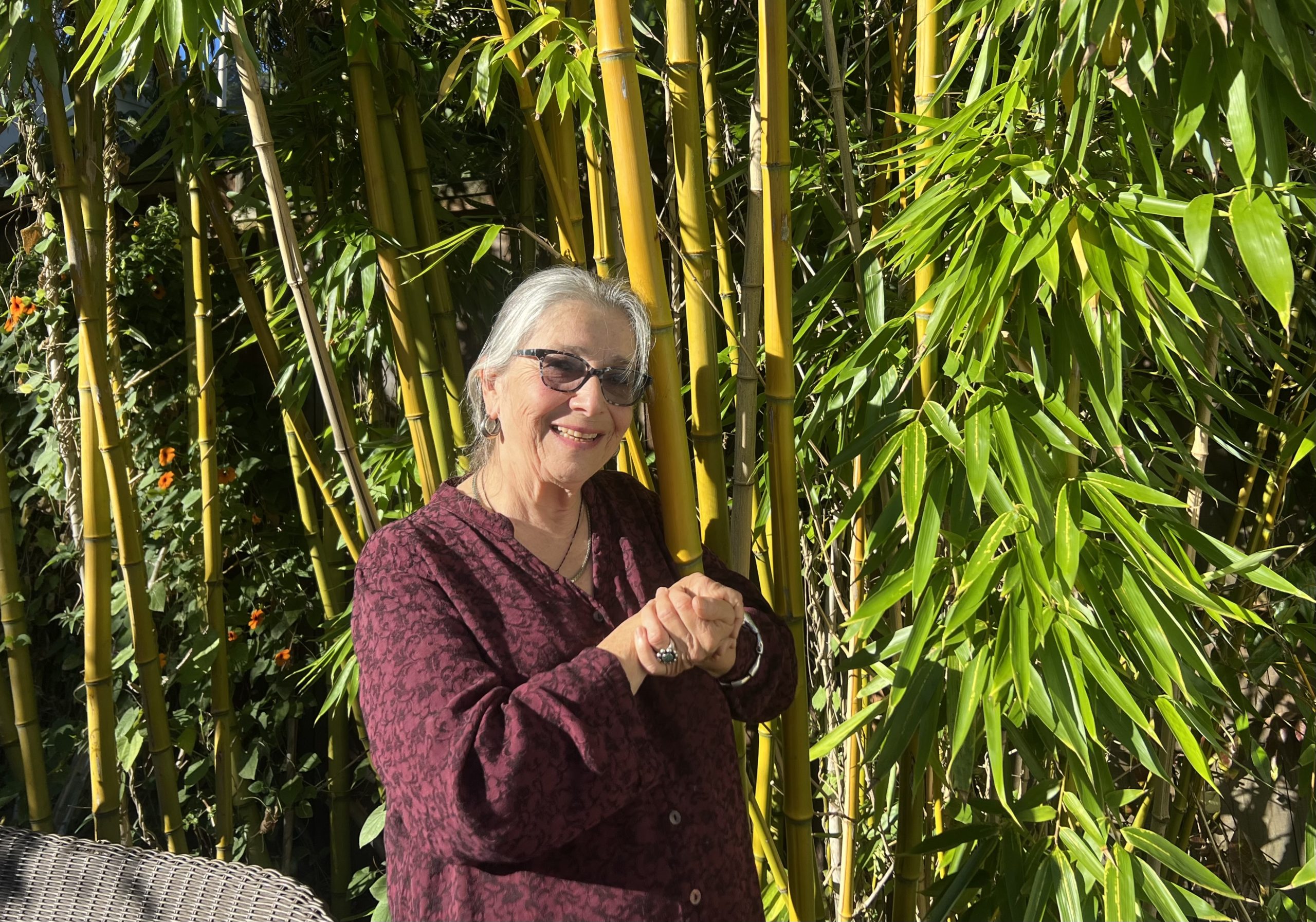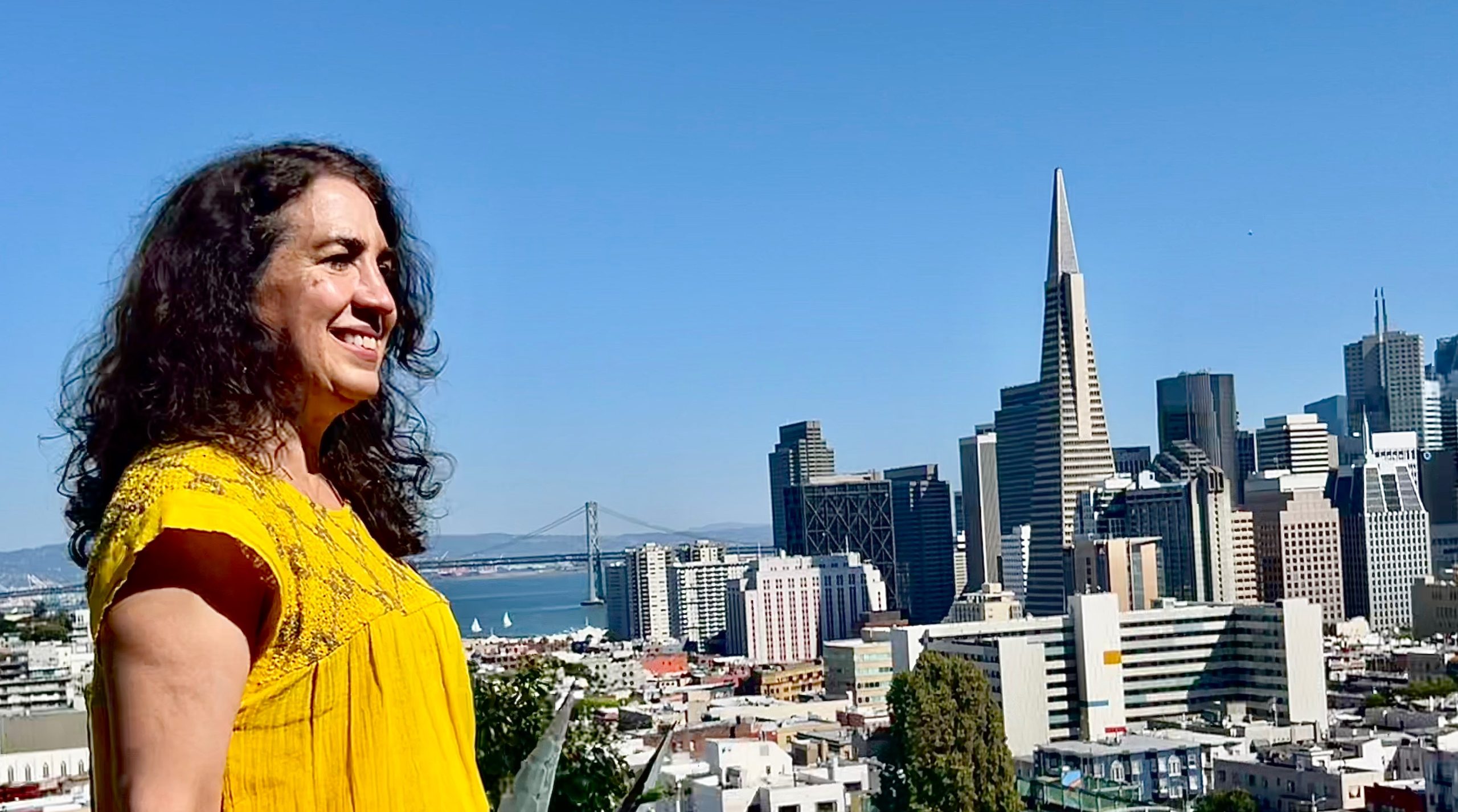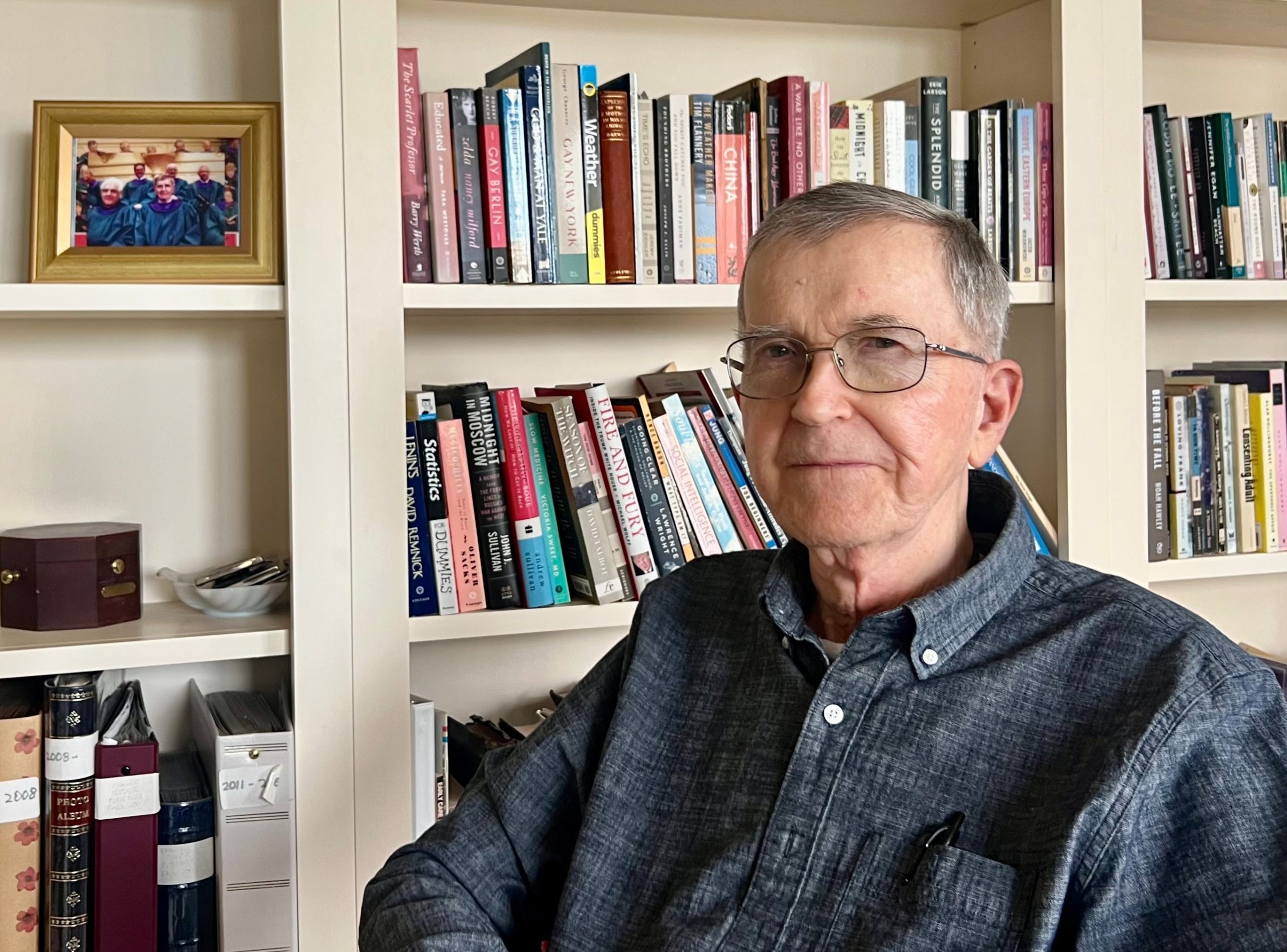S.F. Deputy marriage commissioner: a busy job basking in the happiness of others
Officiating weddings at San Francisco City Hall can be a busy, busy job. But the reward: basking in the happiness of others.
City Hall marriages are performed by trained volunteers, called deputy marriage commissioners. Last year, about 30 performed over 9,000 weddings. Ceremonies start as early as 9 a.m. and continue through 4 p.m. weekdays, with the exception of holidays. Volunteers typically work one two-hour shift per week, during which they might marry 12 couples. About 20 volunteers keep a regular schedule, others fill in when necessary.
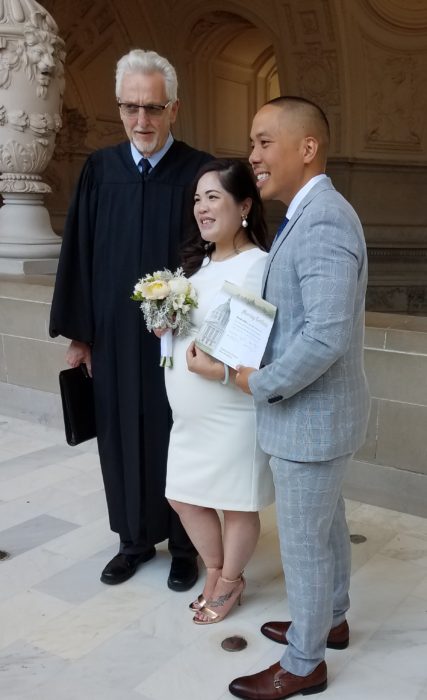
The marrying-est volunteer is Jim Illig. He was among the first people trained as a volunteer marriage commissioner in 1993. He estimates he has conducted about 500 weddings a year over the past 26 years. Several years ago, the San Francisco Board of Supervisors awarded him a commendation for having married over 13,000 couples.
2004 was a particularly busy year. That’s when then-Mayor Gavin Newsom declared gay marriage legal in San Francisco. “Don your robes. All hands on deck,” Illig recalled Newsom announcing. “We married people for nine hours straight,” he said. “We were marrying them all over City Hall. Couples drove in from all over to get married.”
The job entails more than donning a robe and conducting ceremonies. There’s paperwork, swearing in witnesses, directing couples to the rotunda, or a room set aside for weddings in the clerk’s office or hallways on the upper floors overlooking the rotunda when that space is being used for other events.
A tight schedule
The ceremony itself takes about 10 minutes. Commissioners follow an approved script, with some modifications. Illig changed “I thee wed,” an awkward phrase, to “I marry you” and modified “husband and wife” to “partners in life.”
While the first couple is being married, two are waiting in the wings. It’s a tight schedule, made more difficult when there’s a large wedding party.
“We’re supposed to limit participation to six guests, but that’s hard to do, said deputy marriage commissioner Virginia Van Zandt. “One couple brought five bridesmaids and five groomsmen, plus a crowd of family and witnesses. We can’t keep a schedule and we don’t really have room for such a large crowd.”

Couples planning a large wedding are encouraged to rent space at City Hall. Aside from large weddings, there’s the fact that City Hall is a very busy place in general, with all kinds of ceremonies and events taking place.
“I remember one Friday when there were 10 Tonga drums in the rotunda. The sound bounced off the marble,” said Van Zandt. “I apologized to the celebrants, but they assured me it was all right – they’d have stories to tell.”
Van Zandt applied for the position 12 years ago at the urging of Illig, who is a friend. She told me, “It’s the best thing she’s ever done in her life,” he said.
“It really is the most fun I’ve ever had,” Van Zandt acknowledged. “People are so happy; they’re at their happiest. It’s wonderful to bask in that. I see a lot of second marriages. I love marrying gay couples. They’re so grateful. Many have been together since before marriage was legal.”
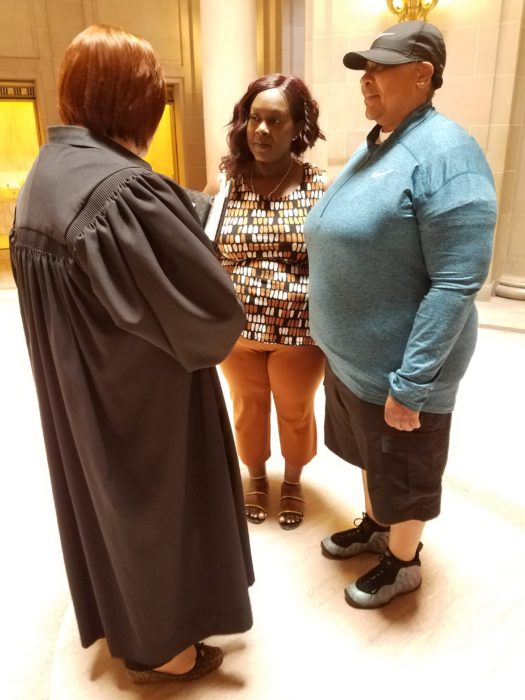
Illig, now a Community Health Manager for Kaiser Permanente, had been working in the LGBT community during the AIDS crisis when he volunteered to be a marriage counselor. He was executive director of Baker Places, residential treatment for mental health and substance abuse with a special focus on LGBT, and then executive director of Continuum HIV Day Services, the first day health program for people with AIDS in the country.
It was a sometimes saddening job, working with people in failing health or near death. When he saw an ad for marriage commissioner, he applied. He needed some balance. Today, he works as a Community Health Manager for Kaiser Permanente.
A kind of fame
Some of the couples Illig has married have stopped him on the street: “You married me, and we’re still married.” He knows they probably wouldn’t stop him if they weren’t still married. And then there’s the wonder of seeing his name writ large at the Pride Parade. “A lot of people enlarge their marriage certificates for the Pride Parade, and I can see my signature.”
Van Zandt, who worked as a fundraiser and executive director for various nonprofits in the human service field before she retired, looked for something to do in retirement that would be “an opening up not a series of losses.”
“One of the pleasures of the job is that you never know who you’ll marry. We marry people from all over the world, from different backgrounds. It’s a challenge and a job,” she said. “I give everyone my full attention. It’s a challenge to make every wedding special. Even that tiny window, those 10 minutes, can make a difference. They can give more meaning to a relationship.
Van Zandt also conducts private weddings for couples who want a more personalized event.
Marriage commissioners were once City Hall employees. But in 1993, Nancy Alfaro, the then-County Clerk decided to bring in volunteers, Illig said, adding that she didn’t think civil servants were sufficiently enthusiastic.
“We’re deputized and trained by the County Clerk,” he said, “although we do call on City Hall staff for language capacity when needed.”
If you are interested in serving as a deputy marriage commissioner, contact Deputy County Clerk Maribel Jaldon, for information and an application form, at 415-554-4961. Find information about getting married at San Francisco City Hall at https://sfgov.org/countyclerk/marriage-general-information.


